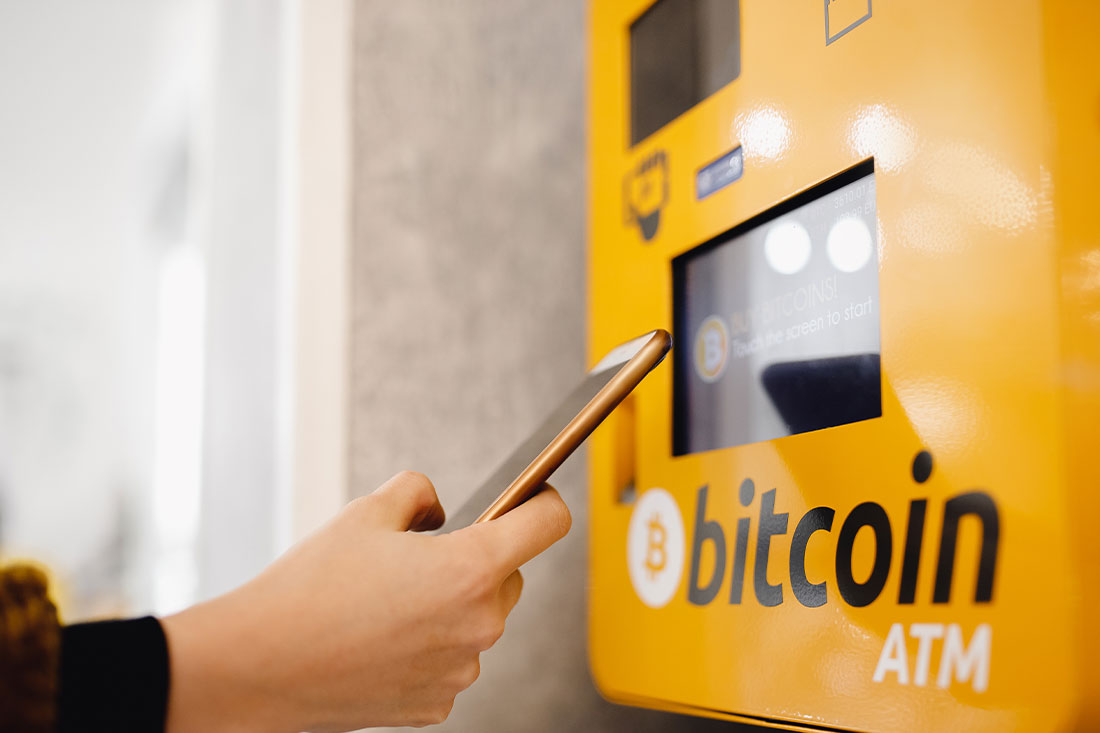Bitcoin shattered records this week, rising above $120,000 as lawmakers kicked off what’s being dubbed “Crypto Week”—a pivotal point that could see the U.S. formally recognize and integrate cryptocurrency into its national financial system. This legislation, if passed, would place the U.S. alongside countries like Switzerland, Singapore and El Salvador in granting Bitcoin and other digital currencies greater legal status.
Bitcoin shattered records this week, rising above $120,000 as lawmakers kicked off what’s being dubbed “Crypto Week”—a pivotal moment that could steer the U.S. closer to a regulatory environment more welcoming to digital assets. This marks a careful but important step in the direction of countries like Switzerland, Singapore and El Salvador, which have taken the lead in building frameworks that legitimize and support the use of cryptocurrencies.
A new chapter for cryptocurrency as U.S. moves toward integration
As digital assets reach trillions in global value, formal recognition is seen as a key milestone for bringing cryptocurrencies like Bitcoin into the broader financial system. Such progression would enable people nationwide to use digital currencies in day-to-day life. In countries that have already made this transition, Bitcoin is widely accepted and supported by features such as cryptocurrency ATMs and official digital wallets.
With digital assets now valued in the trillions globally, formal recognition is a pivotal step toward fully incorporating cryptocurrencies like Bitcoin into mainstream finance. In countries that have made this leap, Bitcoin enjoys widespread utility, supported by infrastructure such as cryptocurrency ATMs and state-backed digital wallets. Although the U.S. has yet to grant any cryptocurrency legal tender status, the increasing popularity of stablecoins hints at a not-so-distant future where digital assets may become part of everyday transactions. By being anchored to conventional currencies like the US dollar, stablecoins offer a more secure and approachable way to engage with crypto for the first time.
Less than three years after the FTX exchange collapse caused Bitcoin’s value to drop and sparked doubts about its longevity, the cryptocurrency has staged a remarkable comeback. This resurgence has given investors renewed hope that crypto could one day replace traditional money, yet that future depends on official recognition and regulation. In the cryptocurrency ecosystem, all transactions are logged on publicly accessible blockchains, turning digital wealth into a fully traceable record.
What regulation means for the safety of your digital funds
Because blockchain transactions are public, anyone can track funds between wallet addresses, so your wallet’s security depends on how well you manage it. Although these addresses don’t reveal who owns them directly, all the activity tied to them is out in the open. This transparency raises important questions about how well financial data is currently protected in the crypto ecosystem, since individuals’ identities can occasionally be pieced together and used in fraudulent activities or cyberattacks.
Hackers often aim for wallets that hold large sums of cryptocurrency, using methods such as hacking, ransomware and extortion to exploit their owners. By cross-referencing public wallet information with leaked personal data, criminals can collect enough details to impersonate or blackmail victims. Poor password security also makes wallets susceptible to attacks. In some instances, hackers target exchanges directly, putting users’ funds stored there at risk, too. For instance, in May, Coinbase Global Inc. (COIN) disclosed that hackers had accessed the home addresses and account balances of nearly 70,000 customers over recent months, putting thousands at risk of extortion and physical danger.
Over the coming week, several legislative proposals that aim to provide clearer guidelines and regulatory frameworks for the cryptocurrency sector will be up for debate. These bills address a wide range of topics, including the issuance and management of stablecoins, transparency in digital asset markets and measures designed to protect user privacy and data security.
Clearer rules matter for cryptocurrency safety
New rules could help consumers use cryptocurrencies such as Bitcoin more safely and with greater confidence. Regulating stablecoins—cryptocurrencies pegged to assets like the U.S. dollar—would ensure they can be trusted as a payment method. Given the lingering doubts many have about cryptocurrency safety, these measures have been proposed to strengthen protection and increase public confidence. The transparency of blockchain technology offers many benefits, but it also demands that users take responsibility to safeguard their wallets against potential risks.
The Digital Asset Market Clarity Act proposes broadening the Commodity Futures Trading Commission’s role, which could result in many tokens being classified as commodities, not securities. A security under U.S. law involves investing money with the expectation of profits driven by a third party’s efforts. A commodity, by contrast, is an interchangeable asset that can be traded on open markets and is highly regulated. In the context of crypto, this means some tokens are regulated like stocks, while others are treated more like raw goods.
When a token is classified as a security, the issuer must comply with Securities and Exchange Commission (SEC) regulations, including registration and disclosure requirements to promote fair and transparent trading. If it’s considered a commodity, it faces lighter oversight, focused mainly on fraud and market manipulation.
The CBDC Anti-Surveillance State Act seeks to prevent the Federal Reserve from creating a digital dollar to avoid increased government tracking. The Genius Act, recently approved by the Senate, focuses on regulating stablecoins, which permits private companies to issue them under regulated conditions.
The Genius Act, recently passed by the Senate, focuses on regulating stablecoins—digital currencies that are tied to the value of the US dollar. It allows private companies to issue these digital coins, but only if they follow strict government rules to make sure each coin is backed by real money or very safe assets. The law also requires companies to regularly report on their reserves and makes it illegal to mislead people about what the coins are or how safe they are. Retail giants like Amazon and Walmart are already planning to launch stablecoins for everyday consumer transactions. According to the WSJ, stablecoins could enable businesses like these to significantly reduce costs associated with traditional banking and card payments that impact their budgets.
Preventing sudden losses in your digital wallet
Regulators want stablecoins to be backed by real money or assets and checked regularly by independent auditors. This helps prevent sudden crashes that could cause people to lose money in their digital wallets. Clearer rules about who oversees different types of digital coins will also help protect people from investing in risky or fake cryptocurrencies that could put their money in danger.
As the U.S. moves toward officially embracing cryptocurrency, the coming months could redefine how future generations will interact with money.
Photo by Parilov/Shutterstock








